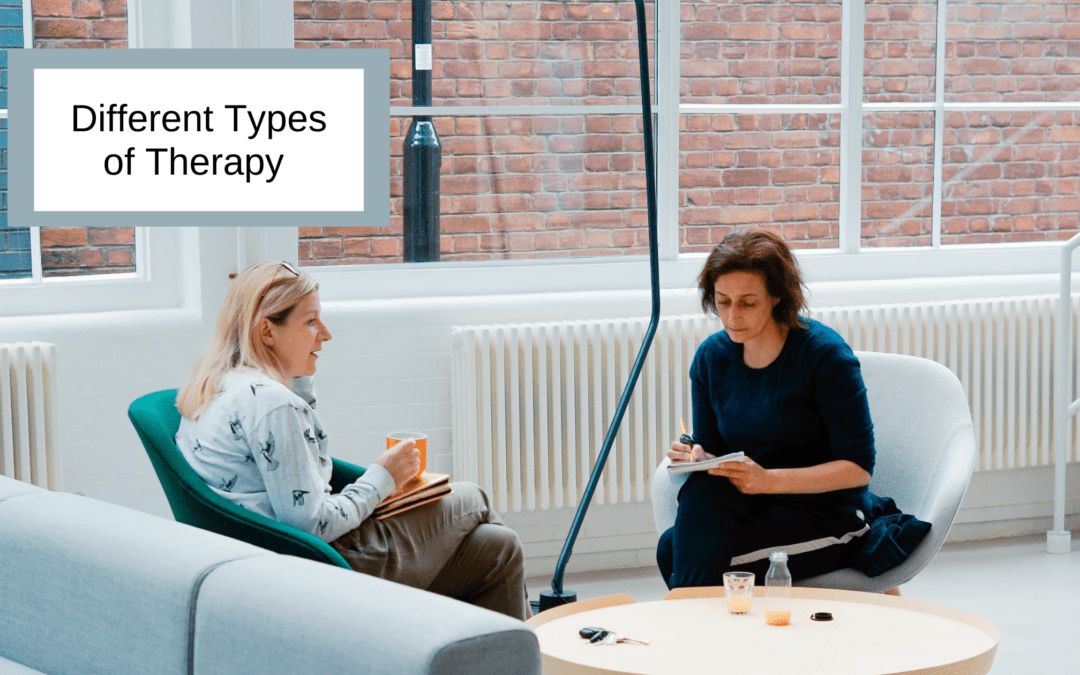If you’re considering therapy for the first time, you may have heard friends and loved ones who have been to therapy talking about the different approaches. It can be hard to tell, but the various types of therapy are more than just alphabet soup. ACT, CBT, MBCT, CPT EMDR. The list of acronyms in the therapy field is long. If you’re not familiar with all the different types of therapy, that’s okay. Your therapist can help you understand and explore the various methods and approaches to counseling as part of your therapy visits. If you’re the type of person who likes to know your options, this blog will walk you through some of the most popular therapy approaches. In the coming weeks and months, the LMV Counseling team is going to explore each of these therapy approaches in greater depth. If you’re interest in learning more about one of these types of therapy, be sure to check back to learn more.

Acceptance & Commitment Therapy (ACT)
The basic tenets of acceptance and commitment therapy (ACT) are right there in the name. The goal of this form of therapy is to help individuals accept and embrace their emotions as necessary and beneficial responses in specific situations. The person then commits to making specific changes in thinking and behavior that will improve their overall mood, increase resilience in the face of difficulty, and help them lead generally more satisfying lives.
Cognitive Behavioral Therapy (CBT)

Similarly, cognitive behavioral therapy (CBT) is a type of counseling that focuses on the way that our thinking, feeling, and behaving are all interrelated, so changing one of these will have an impact on all three areas. For instance, people who struggle with depression often lack motivation. The feeling of depression makes it difficult for them to complete daily tasks, and they may begin to think they aren’t capable of doing things. By completing a set of tasks each day like making their bed, showering, and doing the dishes, the person will notice their mood improves and negative thinking diminishes.
Mindfulness-Based Cognitive Therapy (MBCT)
Mindfulness-based cognitive therapy (MBCT) builds on the ideas of traditional CBT and incorporates mindfulness practices. MBCT can be beneficial for people who struggle with anxiety. One common characteristic of anxiety is the tendency to be stuck in worried thinking, feeling, and acting cycles. Mindfulness helps people to stay in the present moment, breaking free of these anxious thought cycles.
Cognitive Processing Therapy (CPT)
Cognitive processing therapy (CPT) is another form of therapy that developed out of CBT. It is specifically geared toward helping individuals who are struggling to heal following traumatic experiences, including those who have post-traumatic stress disorder (PTSD). This form of therapy focuses on challenging false narratives that develop after traumatic experiences. These false narratives and unhelpful beliefs can have profound consequences on the person’s ability to function from day to day. By confronting and resolving these trauma-based belief systems through CPT, the person is able to reclaim a sense of safety, control, and stability in everyday life.

Eye Movement Desensitization and Reprocessing (EMDR)
Eye movement desensitization and reprocessing (EMDR) is another treatment often recommended for those who suffer from PTSD. This approach to therapy uses bilateral stimulation to address and process distressing memories related to traumatic experiences. This changes the way the trauma memories are stored in the mind and body, desensitizing and diminishing the physical, emotional, and cognitive responses to these traumatic memories.
Find What Style Works Best For You
If you’re ready to get started working with one of the knowledgeable therapists at LMV Counseling, we’d be happy to see you. Our skilled practitioners provide dynamic therapy that responds to individual needs to ensure you get the most out of your counseling sessions with our team. When you’re ready to schedule a visit, call our team at (910) 210-6160, email info@wilmington-counseling.com, or fill out our online scheduling request form.

